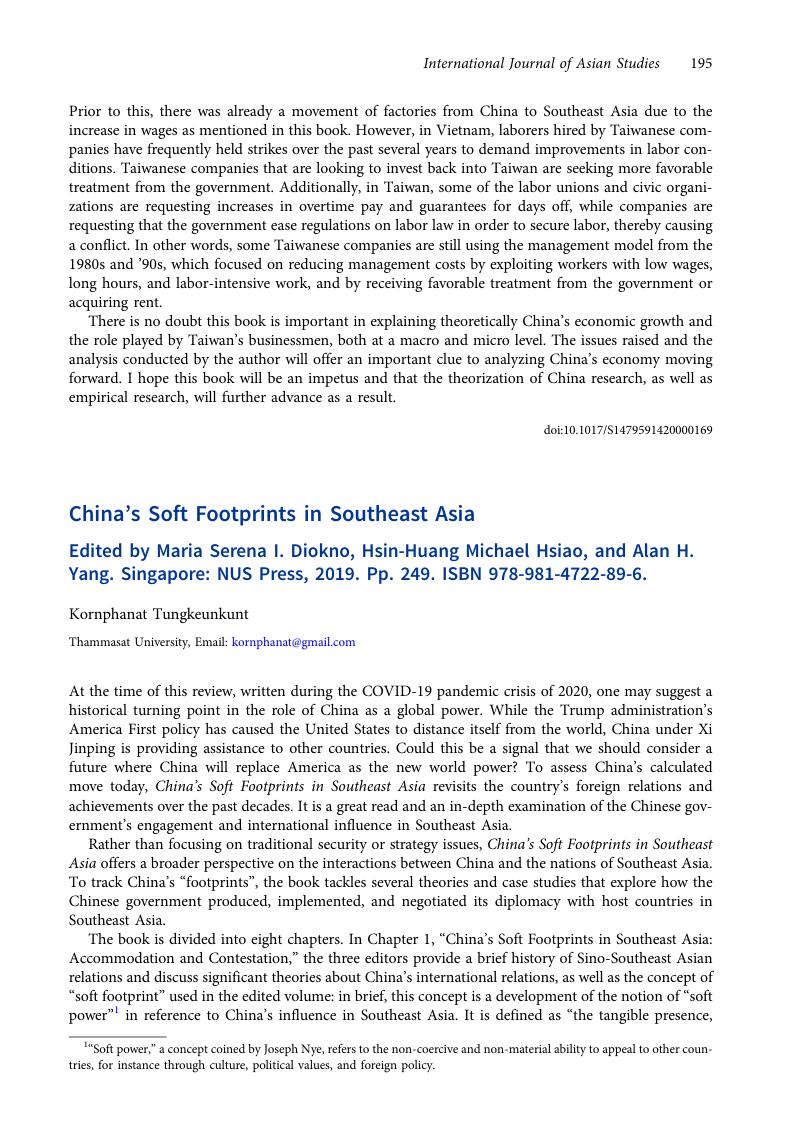No CrossRef data available.
Published online by Cambridge University Press: 21 July 2020

1 “Soft power,” a concept coined by Joseph Nye, refers to the non-coercive and non-material ability to appeal to other countries, for instance through culture, political values, and foreign policy.
2 In the case of China, officials and scholars went beyond Nye's traditional definition of soft power and interpreted the concept in their own, broader, terms.